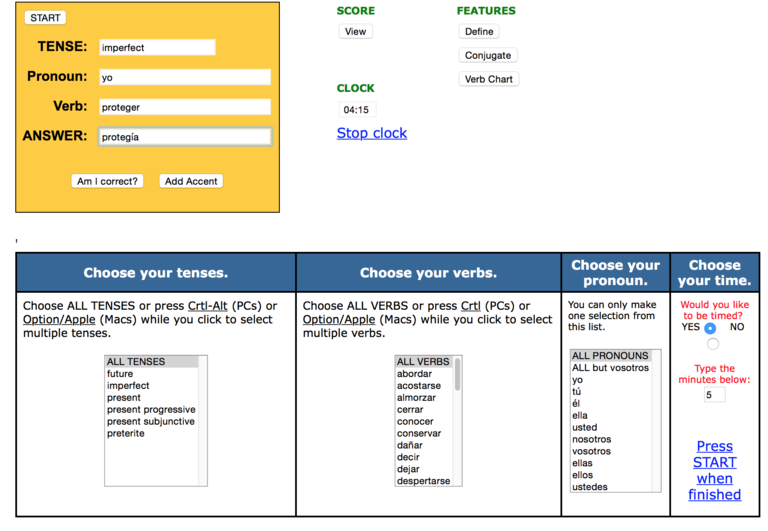By Elly Martens*

Being in CIEE’s Santiago de Chile program has been an extraordinary and seemingly-existential experience thus far. I’m having a wonderful time, my host family is so nice and so supportive—I couldn’t imagine a better housing arrangement—my classes are so interesting and thought-provoking, and Santiago (well… Chile, itself, really) is full of unexpected adventures.
I blame my use of English here on the fact that I don’t have many Chilean friends yet. It’s easier said than done to make Chilean friends! Half of my classes are for foreigners, so usually conversations with the students from those classes are in English—unless we are physically in class. I think the reason for this is because it’s much harder to converse with someone in a language that you both don’t fully have a grasp on yet when that person doesn’t have the same accent that you learned the language.However… (Dun dun dun…) I’m finding it surprisingly difficult to speak in the target language. I mean, gosh, you’d think that by being in Chile—a Spanish-speaking country—I would be constantly in Spanish-mode. I thought that too! I was completely expecting to leave the English language at O’Hare International Airport way back in July, but, I’m finding that is not the case.
For example: I learned a combination of Central American and Spain Spanish in the northern suburbs of Chicago—super Midwestern accent, as it’s been pointed out to me many-a-time. A lot of the people in my class are from different parts of England or Germany, where they normally learn Spain Spanish. So when we try to converse with each other in the target language, Chilean Spanish, it’s rather slow-going and somewhat exhausting.
The classes that are with actual native Chileans are actually very difficult. For some reason, I happened to elect classes that are very specialized, and meant for third year History majors. For example, in my Latin American 20th Century History class, the professor expects us to know everything there is to know about Latin American history up to the start of the 1900s. And I’m sitting in the front row, frantically trying to write everything down, read everything on the board, and comprehend what the professor says, all the while thinking to myself, “Where are my derivatives, harmonics, theories… math?” I feel completely out of place in these classes.

I may not be all that great at finding Chilean friends, but I'm a master at making four-legged friends. This little beauty and I hung around the beach for a solid hour or so. Needless to say, we're besties.
When I first told my professor that I am actually a Biomedical Engineering major back in the States, his jaw seemed to fall off his face, then he asked, “Why are you in my class?!!” Don’t get me wrong, I love his class: I’m being introduced to a different view of world history, and it’s enlightening. But, this class requires a lot of my attention, so I haven’t really had the chance to establish formal introductions with my classmates.
That being said, I really value my time with my host family, because I am forced to speak in Spanish with them. A lot of the Chilean students and professors I have talked to have tried to switch the conversation from Spanish to English once they hear that I’m an English-speaker.
My point is: English still has a strong hold on my experience here, and it’s getting a tidbit annoying.
In an effort to remedy my English input/output, I evaluated my day-to-day habits:
- During my near-hour commute to the universities, and another near-hour commute back, I listen to music… But the majority of my music library is English
- When I speak to my host family and other natives, it seems like all of my six years of learning how to conjugate verbs have up and flown away. I have no clue where my conjugations went. But I would like them back. That would be nice.
- Sometimes I’ll read before going to sleep. I have two books in English that I brought from home for this purpose, but, I have a feeling that switching my mind back into English before bed isn’t the wisest thing to do.
- I have a tendency to break out of Spanish into English if I don’t know a word in Spanish, because it’s easier for me to complete my thoughts.
I’ve come up with a few solutions:
- I changed out my “en-transit” music from Ed Sheeran, Nina Nesbit, Fleetwood Mac, etc for Latin American artists… Gente de la Zona, Marc Anthony, Jesse y Joy, Prince Royce, etc.
- Just like anything else, practice makes perfect, I guess. I found this website to help with my conjugations. It’s a format that I’m more accustomed to, more straightforward and memorization-oriented. During the exercise, I find it beneficial to say a sentence aloud… “Yo protegía blah blah blah…”
- My host grandparents were going to throw away a few books, so I adopted them. I now read El Libro de la Selva (The Jungle Book) and La Segunda Hora (The Second Hour) instead of Anna Karenina and The 100 Year Old Man when I have a free moment.
- I feel like all of my high school Spanish teachers will be so proud of me when I say I’m making a more conscious effort to use circumlocution instead of trying to find a direct translation to a word I don’t know. I try to describe what I want to say rather than break out of Spanish into English and hope they understand what I’m talking about.

This handy website allows you to choose what verbs and conjugations that you are comfortable with to help your conjugating habits!
I’ve noticed that a few of these changes have helped. Like, when I spend an hour listening to Spanish music, I’m already in “Spanish-mode” by the time I reach my first class. And when I read El Libro de la Selva before going to bed, I’ve found I dream in Spanish. That was an odd sensation the first time it happened.
I think when I stay in “Spanish-mode” my Spanish-speaking is much more fluid and I feel more confident when I speak. And that’s the goal! So as far as I’m concerned, these changes are working! And I think my conjugations are finding their way back to me, poco a poco.
*Elly Martens is studying biomedical engineering with a minor in Spanish at the University of Iowa. The Lindenhurst, Illinois, native is spending her semester at Universidad de Chile as part of the CIEE Liberal Arts Program in Santiago, Chile.
Student blog entries posted to this International Accents page may not reflect the opinions and recommendations of UI Study Abroad and International Programs. The blog is intended to give students a forum for free expression of thoughts and experiences abroad in a respectful space.